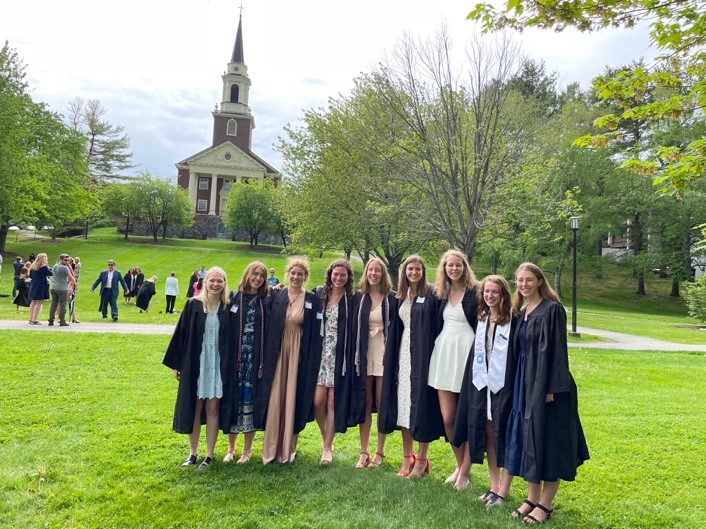For many of us it’s the season of graduations- a time to reflect on journeys taken and the sweet feelings of success. It’s the time of endings and new beginnings, both of which carry with them excitement and stress, happiness, and melancholy.
For me, this year included my youngest child’s graduation from college, clearly a time of celebration for her. For me, it also signified the end of an era. I can recall my own mother talking about the joys of seeing her children launch, saying that was after all a parent’s goal. But I also always detected a wistfulness in her voice, an acknowledgement that the goal also carried with it a personal loss. As I was the youngest of her children to graduate from college, I suspect my graduation was a bittersweet occasion for my parents as well as something to celebrate.
Although in my youth I was quick to want to move on with my own life, not wanting to linger on philosophical musings about parenting and loss, now being in the position my mother once was, I feel both her joy and her sadness as these transitions inevitably include a spectrum of emotions.
Sitting amidst the thousands of now vaccinated and unmasked Colby parents we were privileged to hear a range of people reflect upon the milestone graduation event. But most of all I was moved by the commencement address speaker, Richard Blanco (the inaugural poet at the 2013 Inauguration of President Barack Obama) who wrote and delivered a poem for Colby’s class of 2021. Through poetry he spoke to the graduates (and us) about being all that one is, all of who one has been and all that one might be. He spoke about one of my favorite concepts, derived from the Zulu Nation’s traditional greeting, “We See You”.
We See You, is a greeting not just of visual recognition but a concept that encompasses the idea that the individual before you is more than just the person you see at a given moment in time; it’s part of my vision for and foundation of The Consilium Process, in which we strive to help people restructure their lives and their families.
So, with my apologies to Mr. Blanco I extrapolate as best I can recall from the gift of his eloquent words. He spoke of deciphering equations as well as mysteries of the heart, about the will of waves that will keep breaking against injustice, about stars mapping new constellations to tell new stories, and about hearing the symphony of crickets that will keep playing over the din of these days. He encouraged the graduates to see themselves in others and asked that as they turned their tassels to turn to one another and say I See You. He said turn to yourself and say I see me in everyone and everything, and turn to the sun and say We See Us. And finally, he encouraged these young adults on the cusp of their new endeavors to aim for tomorrow’s horizons, to look up and see the same clouds they saw as children and know that it’s their time to change without changing their very being. He encouraged them to keep writing with the ink of their will for the rest of their beautiful and challenging lives.
A wash of emotion came over me as I listened to Mr. Blanco, looked at the promise all around me and wistfully wondered how the years could be so fleeting when the days of my children’s toddlerhood often seemed so long.
We See You
All of who you are, all of who you have been, and all of who you have yet to become

